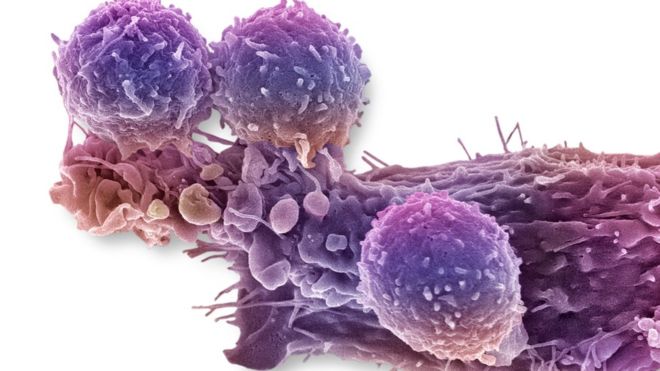Cancer scientists have genetically modified the immune system to help it attack tumours in mice.
The immune system is the body’s own defence against infection and cancer, but tumours develop ways of stopping the onslaught.
The University College London team manipulated the DNA of immune cells to allow them to keep up the fight, according to BBC.
Experts said the idea needed to be tested in human trials, but it was still exciting.
Harnessing the power of the immune system to fight cancer is one of the most exciting fields in medicine.
A lot of the research is targeted at the “chemical handshake” that tumours use to disable immune cells.
Aclass of drugs called checkpoint inhibitors, such as pembrolizumab and nivolumab, interrupt the handshake and are already available for patients.
This has lead to spectacular results for some patients, but it can lead to side-effects as the drugs affect the whole immune system.
The approach now being tried effectively cuts off one of the hands – known technically as PD-1 – to prevent the handshake, but is targeted only at those immune cells attacking the cancer.
In experiments on mice, scientists extracted killer T cells – which gobble up cancerous tissue – from inside the tumour. The assumption is the immune cells clustering inside the tumour are trained to attack it.
Cutting edge gene editing technology was then used to change the DNA – the code of life – inside the killer T cells so that PD-1 was removed and cancers would be unable to stop them.
It is known colloquially as “cutting the brakes”.
In experiments on melanoma and fibrosarcoma, mouse survival increased from less than 20% after 60 days without treatment to more than 70% with treatment.
H.Z

